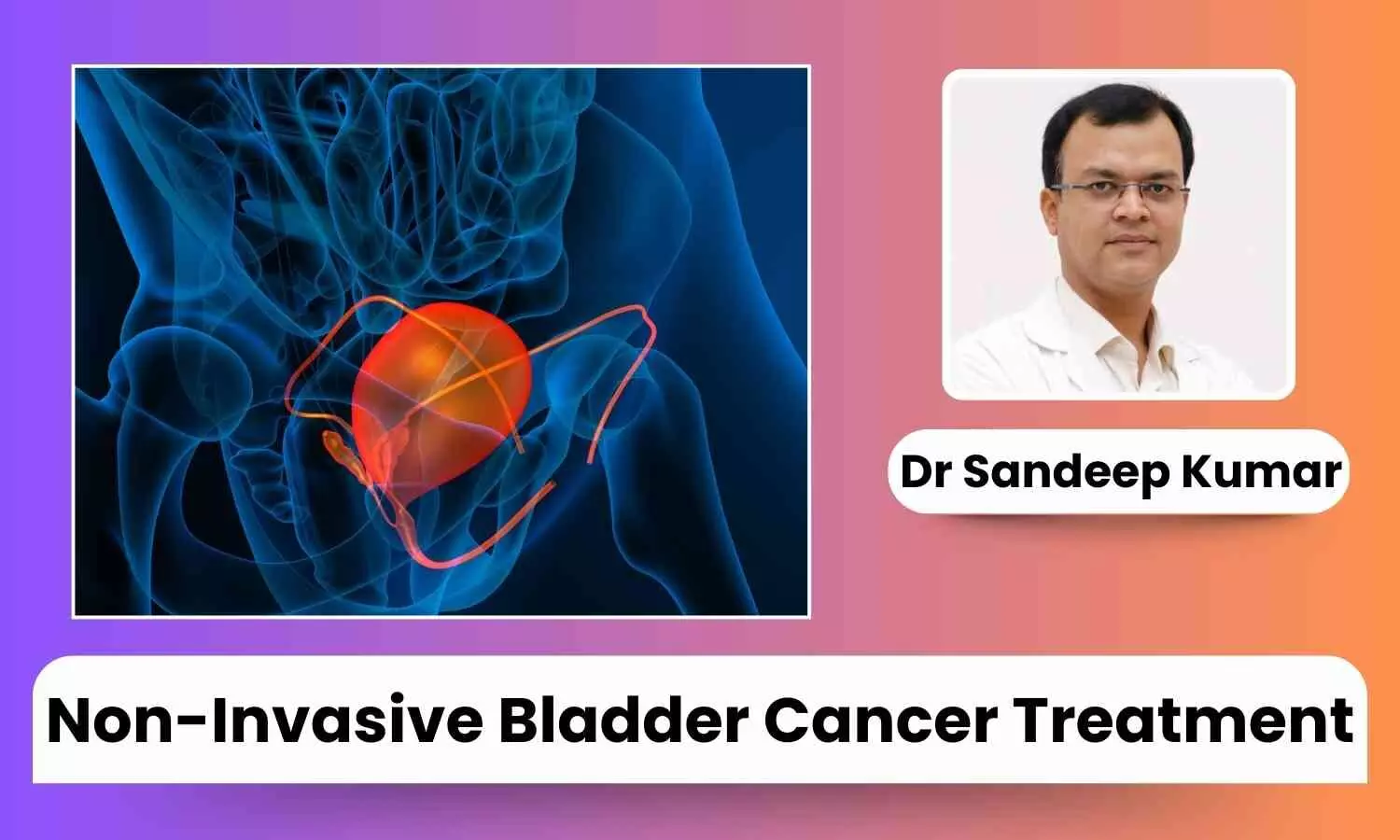Non-Invasive Bladder Cancer Treatment: High Risk Factors to Know About - Dr Sandeep Kumar

Maintaining good health requires a proactive approach to understanding potential risks and taking preventive measures. While many of us focus on day-to-day well-being, it’s equally important to be aware of underlying health concerns that may not present obvious symptoms until they have progressed.
Early detection and awareness of high-risk factors can significantly improve outcomes, particularly when it comes to certain conditions that, if caught early, can be effectively managed without the need for invasive treatments.
Bladder cancer is one of the most common types of cancer, and in many cases, early detection allows for non-invasive treatment options that can significantly improve the patient’s quality of life.
Unlike more aggressive forms of cancer, non-invasive bladder cancer remains within the lining of the bladder, making it more manageable with appropriate care. However, understanding the high-risk factors associated with bladder cancer is crucial in preventing its development and ensuring early intervention.
High-Risk Factors
1. Smoking
Smoking is one of the leading risk factors for bladder cancer. Harmful chemicals in tobacco smoke are processed by the kidneys and eventually pass through the bladder. This prolonged exposure to carcinogens can damage the bladder lining, heightening the risk of cancerous cell growth.
2. Occupational Exposure
Certain occupations, especially those involving chemical processing, can raise the risk of bladder cancer. Workers in industries like rubber, leather, paint, and textiles are more likely to be exposed to cancer-causing substances, such as dyes and chemicals, that can affect bladder health over time.
3. Chronic Bladder Irritation
Long-term bladder irritation or inflammation can also increase the risk of developing bladder cancer. Conditions like bladder stones, urinary infections, and prolonged use of catheters can lead to chronic irritation, which may, over time, result in cancerous growths in the bladder.
4. Age and Gender
As with many cancers, age plays a role in the likelihood of developing bladder cancer. Most diagnoses occur in individuals over the age of 55, and men are more likely to develop the disease than women, although both genders are at risk.
5. Family History and Genetics
A family history of bladder cancer or genetic mutations can also elevate the risk. People with close relatives who have had bladder cancer should consider regular screenings and lifestyle adjustments to mitigate their risk.
Non-Invasive Treatment Options
For those diagnosed with non-invasive bladder cancer, treatment often involves less aggressive methods. These options focus on targeting the cancer cells while preserving bladder function:
- TURBT (Transurethral Resection of Bladder Tumor): A common procedure for non-invasive bladder cancer, TURBT involves removing the cancerous tissue from the bladder lining using a cystoscope.
- Intravesical Therapy: This treatment involves delivering medication directly into the bladder via a catheter. It helps prevent recurrence by targeting cancer cells within the bladder.
- BCG Therapy: Bacillus Calmette-Guérin (BCG) therapy is a form of immunotherapy that stimulates the immune system to attack cancer cells while leaving healthy cells unaffected.
Importance of Regular Screenings
While non-invasive bladder cancer is highly treatable, early detection is key to successful outcomes. Regular screenings, especially for those with high-risk factors, can lead to early diagnosis and reduce the need for more invasive treatments.
If you are at higher risk due to lifestyle, occupation, or family history, it’s essential to stay informed and undergo routine check-ups.
Future Outlook
Bladder cancer, especially in its non-invasive form, can be managed effectively with early detection and proper treatment. Understanding the high-risk factors can help individuals take preventive steps and seek timely medical advice.
With advancements in non-invasive treatments, patients can maintain a high quality of life while effectively managing the disease.


